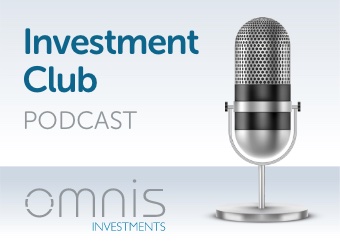5 practical ways to protect your money during the cost of living crisis
Monday 12 June, 2023
With inflation at its highest level in 41 years and energy prices skyrocketing, the cost of living crisis has dominated headlines since inflation began to creep up from historic lows in mid-2021.
While the Covid pandemic began the inflationary increase, this was further exacerbated by the war in Ukraine pushing up energy and food prices even further.
Following such an extended period of price rises, you may be concerned about your household finances and long-term plans. So, here are five ways to protect your finances during the cost of living crisis.
1. Review your budget and personal inflation rate
Reviewing your spending will clarify where your money is going and highlight potential areas to cut costs and make savings.
Despite a lot of noise about inflation and its impact on UK households, the good news is that your personal rate of inflation depends on how you spend your money. It won’t necessarily match the official inflation rate and so changing your spending habits can help bring it down.
For example, since much of the rise in prices has been caused by soaring fuel prices, your personal inflation rate may be lower than the average if you don’t drive or own a car.
Energy prices have also risen significantly throughout 2022. However, if your home is especially energy-efficient, you may use less energy than an average household. This could bring your personal inflation rate below the average.
You can use an online calculator – such as this one from the ONS website – to help you work out your personal inflation rate online.
2. Manage debt
Higher interest rates mean increased borrowing costs. So, check the rates and see if you can reduce the interest you’re paying.
Focus on repaying credit card debt first. Credit cards typically charge high levels of interest and the negative compounding effects can be difficult to escape.
If you have high credit card debt, transferring to a limited-period nil-interest rate account could help you repay the debt sooner.
3. Ensure your savings are working hard for you
Around £160 billion in savings accounts pay less than 0.5% interest, so it’s worth shopping around for higher interest rates on your savings.
Alternatively, a financial adviser can help you secure the best cash savings rates.
As interest rates change, some savings platforms move your money to secure optimal rates.
4. Resist the temptation to dip into your investments or stop saving for your future
You may be tempted to dip into your pension or investments to tide you over but consider the long-term effect on your retirement plans.
Selling investments or drawing from your pension could leave you worse off in the long run, so assess every option before you act.
It’s important to continue to pay your future self first, too; be sure to maintain regular, tax-efficient contributions to your pension and ISAs.
5. Remember your long-term financial plan
Making rash financial decisions during the current crisis could jeopardise your long-term financial security. If you’re worried about the rising costs of living and what you can do to protect your short- and long-term financial plans, we can help.
Get in touch
Tracy Dove, Financial Consultant and Mortgage Broker in Basildon said:
“If you’re worried about the rising cost of living and would like to discuss ways to protect your finances from the effects of inflation, we’re here to help. Please get in touch to arrange a time to chat.”
Approved by The Openwork Partnership on 14.02.2023






